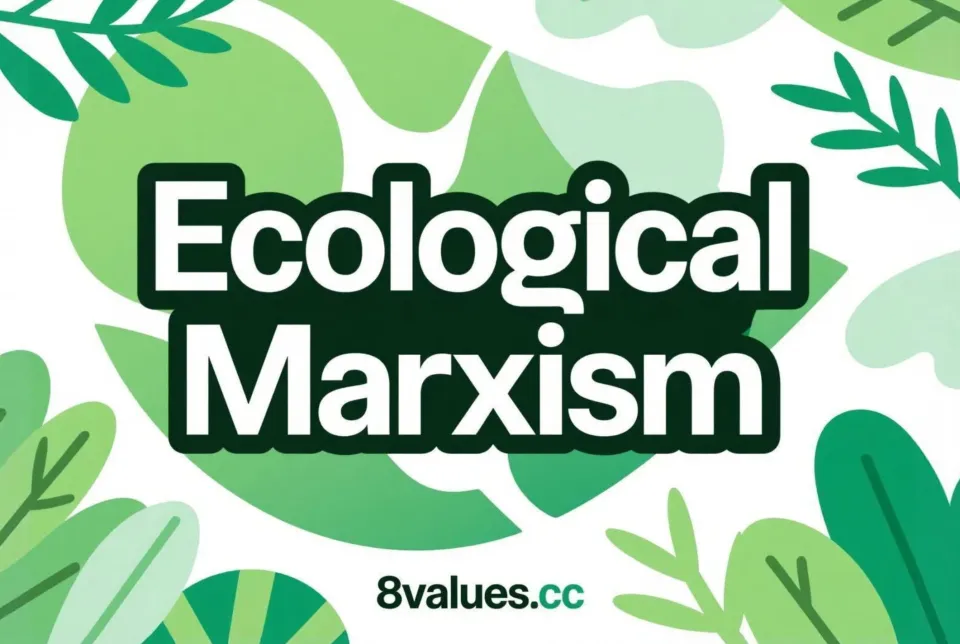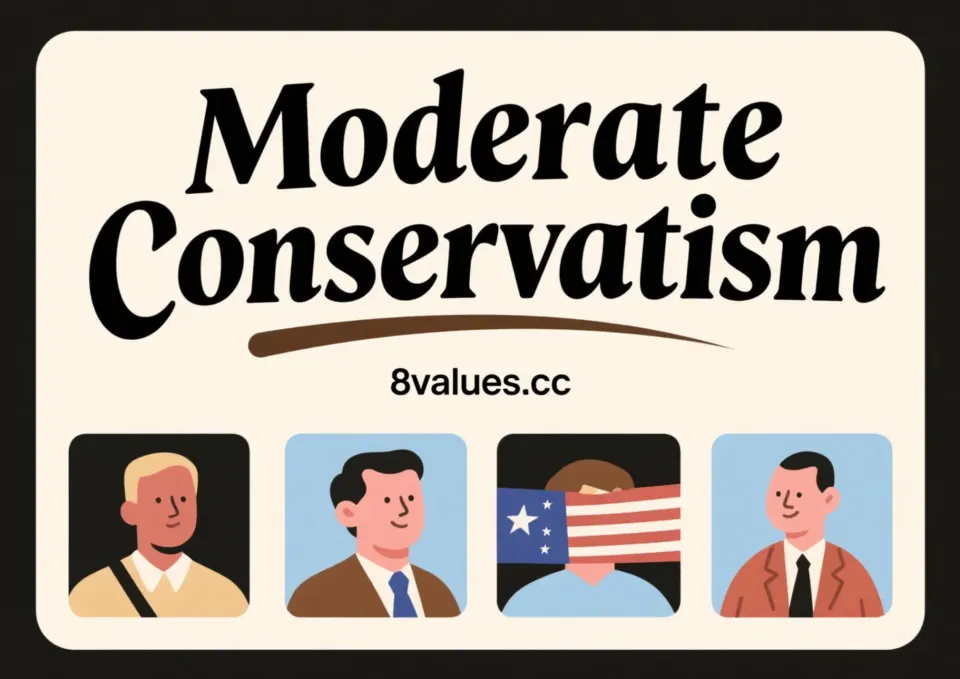An in-depth interpretation of Ecological Marxism: From a critique of capitalism to a vision for the future of ecological socialism
Ecological Marxism is one of the most influential trends in contemporary Western Marxism. It combines Marxism with ecology and aims to explore the interrelationship between environmental issues and social issues. Its core lies in criticizing the capitalist system as the root cause of the ecological crisis and constructing the institutional ideal of ecological socialism.
Any valuable theory must pay attention to the hot spots and focal issues of the times. With the acceleration of the development of modern industrial civilization, the ecological crisis centered on resource shortage and environmental pollution has become a major issue threatening human survival and development, and has become a hot topic of theoretical circles. As the essence of the spirit of the times, Marxist philosophy must pay attention to this current focus issue, which has contributed to the growth of the theory of Ecological Marxism.
Ecological Marxism is a theoretical system that combines Marxism and ecology, aiming to explore the interrelationship between environmental issues and social issues, and to pursue the "win-win" concept of ecological harmony and full human development. If you're interested in this ideological bent of political values that combines "red" ideas with "green" concerns, you can explore where you fall on the ideological spectrum with tools like the LeftValues political test .
The rise and development of ecological Marxism (Ecological Marxism)
Ecological Marxism is an important school of Western Marxism and a social trend of thought that emerged in the mid-20th century and has had a major impact on contemporary society. It emerged in the context of the increasingly serious ecological crisis caused by Western capitalist industrialization, and was accompanied by the rise of the Western green environmental protection movement ("Yuanse Movement").
The term "Ecological Marxism" comes from Ben Agger, a professor at Texas State University in the United States. He first used this concept in "Introduction to Western Marxism" published in 1979.
The theoretical purpose of this trend of thought is to combine Marxism with ecology and launch a new ecological critique of contemporary capitalism. Contemporary American social ecologist James O'Connor is a leading figure in the study of ecological Marxism. The publication of his book "Natural Reasons - A Study of Ecological Marxism" is a sign of the maturity of ecological Marxism. In O'Connor's view, the contemporary path to developing Marxism is to promote "ecological reform of Marxist theory" and achieve the integration of Marxism and ecology.
The development of ecological Marxism has roughly gone through three stages:
- The first stage (1980s): Questioning the ecological “theoretical emptiness” of Marxism. Representatives of this stage, such as William Leiss and Agger, tried to replace Marx's economic crisis theory with ecological crisis theory.
- The second stage (from the late 1970s to the 1990s): Constructing a dual crisis theory in which economic crisis and ecological crisis coexist. This stage strives to return to the critical origins of Marxism, with representative figures such as James O'Connor.
- The third stage (from the beginning of the 21st century to the present): Systematically construct “Marx’s ecology” and reveal the ecological elements within Marx’s thought. Representative figures such as John Bellamy Foster and Paul Burkett, through their excavation of Marx’s classic texts and natural science notes, effectively demonstrated the existence of ecological elements within Marxist thought.
Ecological Marxism’s critical analysis of the root causes of the ecological crisis
The central issue that ecological Marxism focuses on is the ecological crisis. The more profound and distinctive part of its theory lies in the exploration of the causes of the ecological crisis. This school believes that the ecological crisis is rooted in the capitalist system and production mode, and conducts a profound analysis from the ideological and institutional levels.
The anti-ecological nature of capitalism
Ecological Marxism believes that protecting the ecological environment and developing capitalism are inherently contradictory. The expansion of capital is an inevitable trend without limits, while the natural carrying capacity is limited. Under the capitalist system, production is the destruction of resources and the environment, and any production is linked to the destruction of the ecosystem.
- Predatory production and cost externalization: The purpose of capitalist production is to maximize profits. This determines that capital must adopt a predatory stance and regard nature as a place for plundering resources and piling garbage. In order to reduce production costs and pursue profits, capitalists must find ways to externalize part of the environmental pollution costs that should be included in production costs and pass them on to society or future generations.
- Metabolic rift: Marxist ecology emphasizes that capitalism disintegrates the ecological regulation mechanism of pre-industrial society, leading to a material metabolic rift in the relationship between man and nature. Marx once pointed out that capitalist production destroys the material transformation between people and land. For example, the concentration of urban population causes nutrients in food to be taken away from the land, while urban waste is discharged into rivers and oceans, preventing nutrients from returning to the land. This rupture creates "irrepairable cracks" in the material transformation between man and nature.
- Ecological imperialism: Contemporary capitalism passes on and mitigates crises through ecological plunder of vast developing countries. Relying on their financial and technological advantages, Western developed countries have plundered and occupied global resources to the greatest extent, and promoted "ecological colonialism" in the third world, also known as "ecological imperialism". This has led to the deterioration of the ecological environment in developing countries. Ecological Marxism believes that this kind of plunder is essentially consistent with the slave trade and commodity/capital export during the period of primitive accumulation.
alienated consumption theory
Ecological Marxism believes that the reason why ecological issues have become problems is inseparable from alienated consumption under the dominance of the modern capitalist market.
The highly developed productive forces of capitalism have led society into a so-called consumer society. In order to promote the consumption of products, capital achieves compulsive consumption by creating a large number of "false needs". This false need refers to “those needs that are externally imposed on an individual for a specific social benefit.”
Under the alienated consumption model, people often pursue material enjoyment excessively, leading to over-exploitation and waste of resources, exacerbating the damage to the ecosystem. This alienated consumption supports alienated production, allowing capital accumulation and reproduction to proceed.
Double Crisis and the Ecological Dimension of Marxism
The Double Contradictions and Crisis of Capitalism
James O'Connor proposed the dual crisis theory of capitalism. He summarized the classic Marxist contradiction between capitalist productivity and production relations as the first type of contradiction (economic crisis). On this basis, O'Connor proposed the second type of contradiction : the contradiction between the infinity of capitalist production and the limitation of capitalist production conditions (including natural resources).
These two types of contradictions interact with each other and coexist in the globalized capitalist system, forming a dual crisis of capitalism—an economic crisis and an ecological crisis. Ecological criticism of capitalism has become an important critical field of ecological Marxism.
Theoretical cornerstone of Marx's ecological view
Despite the controversy over the “theoretical void” of Marxism, contemporary ecological Marxists, especially the third-stage researchers, have systematically interpreted the rich ecological thoughts contained in the works of Marx and Engels.
- Materialist view of nature: Marxism believes that man and nature are a "community of life" and emphasizes that "man and nature are a community of life. Human beings must respect nature, comply with nature, and protect nature." Engels once warned: "We must not be overly intoxicated with our victories over nature. For every such victory, nature takes revenge on us."
- Material transformation (Stoffwechsel): Marx named the complex and dynamic exchange between man and nature caused by human labor after "metabolism" (material transformation). He pointed out: "Labor is first of all a process between man and nature, a process in which man mediates, adjusts and controls the material transformation between man and nature through his own activities." Foster believes that it was through the concept of "metabolic rupture" that Marx clarified the importance of suturing the rupture and achieving sustainable development to the socialist strategy.
- Source of wealth: Marx pointed out: "Labor is not the only source of the use value it produces, that is, material wealth. As William Petty said, labor is the father of wealth and land is the mother of wealth." This shows that the production of wealth contains elements of both nature and labor.
Through in-depth study of Marx's ecological views, we can have a deeper understanding of the complexity of current ecological issues. If you are interested in these complex dimensions of political theory, consider using the 8Values Politics Test or the 9Axes Politics Test to analyze your political leanings.
Emerging from the ecological crisis: the exploration of ecosocialism
Ecological Marxism holds that capitalism is inherently anti-ecological and anti-natural. Therefore, to fundamentally solve the ecological crisis, we must transcend the capitalist system and take the path of ecological socialism .
Ecological rationality and steady-state economy
Compared with the capitalist system, ecological socialism is better able to achieve ecological balance. It advocates that the economic rationality of capitalism must be replaced by ecological rationality .
- Goal change: Ecological rationality emphasizes that the purpose of social production is no longer motivated by profit, but is consistent with ecological protection. Production will be aimed at meeting reasonable human needs, not at unlimited profits.
- Steady-state economic model: Ecological Marxists advocate the establishment of a "steady-state economic model", that is, by controlling the unlimited growth of production scale and the speed of economic development to stabilize it, maintain zero economic growth, achieve the protection of the ecological environment, and establish harmony between man and nature.
- Use value priority: Ecosocialism emphasizes use value rather than capitalist exchange value. Only by overcoming the separation of labor and labor products, and the separation of labor and means of production, can use value be liberated from exchange value.
Build ecological socialism
Ecosocialism is committed to building an ecologically sound and sensitive society, based on democratic control of the means of production and information, etc., and characterized by a high degree of socioeconomic equality, harmony, and social justice.
Ecological Marxism holds that ecology requires socialism because the latter emphasizes the crucial role of democratic planning (democratic planning) and social exchange among human beings.
- Green economic development model: advocates the establishment of a green economic development model, emphasizing the ecological and systematic principles throughout the production activities and economic activities of the entire society. The purpose of social production should be to use rather than sell and profit, and focus on the rational utilization and distribution of natural resources.
- New social culture and lifestyle: Ecological Marxism criticizes the popular consumerist culture and lifestyle in contemporary Western capitalist society. Gautz proposed the idea of "produce less, live better" ("produce less, live better"), the core idea of which is: "The economic standards of maximizing productivity and profit margins are subject to the ecological standards of society."
- Joint producers’ control of nature: The communist society envisioned by Marx is a society in which man and nature are harmoniously unified. In this future society, "socialized people, united producers, will rationally regulate the material transformation between them and nature, bringing it under their common control rather than letting it rule themselves as a blind force."
Ecological Marxism’s profound analysis of capitalism and systematic criticism of the ecological crisis make it an important theoretical resource for understanding contemporary social contradictions and seeking paths to sustainable development. If you want to enhance your understanding of global social and ecological issues through an in-depth understanding of various political theories, in addition to the official blog of this website, we also provide various popular political values and ideological orientation testing services, such as the 8Values political test , to help you better define your political stance and political value orientation.






